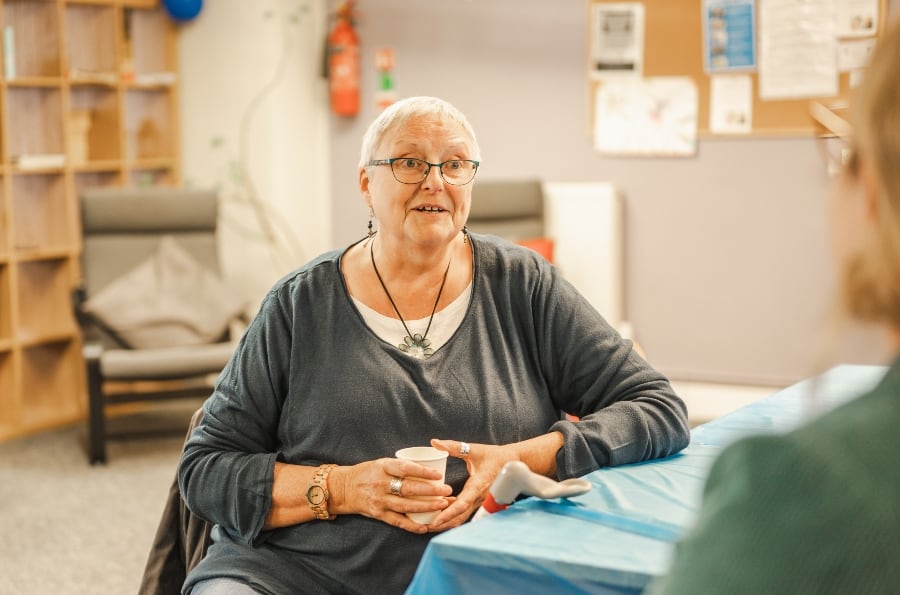UK Government calls for evidence on how best to tackle the six major conditions in England
The UK Government has launched a call for evidence on how best to prevent, early diagnose, treat, and manage the six major groups of conditions to improve care and outcomes for those with multiple conditions and an increasing complexity of needs.
Assistive technology could be part of the answer to prevent, diagnose, treat, and manage the six major conditions.
The six major health conditions – cancer, cardiovascular diseases including stroke and diabetes, chronic respiratory diseases, dementia, mental ill health, and musculoskeletal disorders affect millions of people in England with data showing that one in four have two or more of these major long-term conditions, according to the UK Government.
Recognising the pressure these conditions are putting on the NHS, the government is seeking views on a new strategy to tackle them that will focus on treatment and prevention.
The new ‘major conditions strategy: call for evidence’ will inform a landmark major conditions strategy and will help the country’s ageing population to stay in better health for longer.
The World Health Organization (WHO) states that assistive products, such as hearing aids, wheelchairs, communication aids, spectacles, prostheses, pill organisers, and memory aids, help to maintain and improve an individual’s functioning and independence, thereby promoting their well-being.
WHO further states that assistive technology reduces the need for formal health and support services, long-term care, and the work of caregivers. The ageing global population and a rise in noncommunicable diseases means that more than 3.5 billion people will need at least one assistive product by 2050, with many older people needing two or more.
The government is interested in hearing from those who have long-term conditions, care for, or provide treatment to people with multiple long-term conditions.
Contributions are also encouraged from those working in NHS bodies, local government, the voluntary and community sector, and wider industry on how best to tackle one or more of these major conditions.
The call is particularly seeking perspectives on how government and the NHS can work better together with different organisations and sectors to improve the nation’s health.
The major conditions strategy signals the government’s intention to improve care and outcomes for those living with multiple conditions and an increasing complexity of need.
Health and Social Care Secretary, Steve Barclay, who recently visited a care home in Tokyo to find out more about how it uses assistive technology to reduce pressure on staff while providing better care for residents, said: “Patients often live with more than one major condition, so it’s vital that we do all we can to understand how best to manage their care.
“I encourage patients, carers and healthcare professionals to contribute to our call for evidence so we can ensure our major conditions strategy is as targeted and patient-focused as possible.”
Sources gathered by WHO state that assistive technology can have a positive impact on the health and well-being of a person and their family, as well as broader socioeconomic benefits, such as proper use of hearing aids by young children leads to improved language skills, without which a person with hearing loss has severely limited opportunities for education and employment.
It is also found that manual wheelchairs increase access to education and employment while reducing healthcare costs due to a reduction in the risk of pressure sores and contractures, and assistive technology can enable older people to continue to live at home and delay or prevent the need for long-term care.
Minister of State for Care, Helen Whately, commented: “We want to hear from as many people as possible affected by these conditions in our call for evidence. It’ll help us join up care across the NHS and mean better treatment for millions of people.
“It’s also really important that we hear from professionals working in areas like dementia or cancer too. Their frontline experience will be invaluable to make sure our strategy includes plans which will really work in practice.”
Looking beyond the immediate pressures on the NHS, the strategy will focus on what can be delivered now as well as over the coming years to improve outcomes.
The strategy will also build on work already done to tackle waiting lists for planned NHS treatments through the NHS elective recovery plan.
Submissions to the call for evidence can be entered by visiting the UK Government website here. It is open for six weeks and will close on 27 June 2023.


